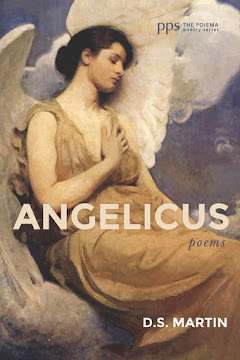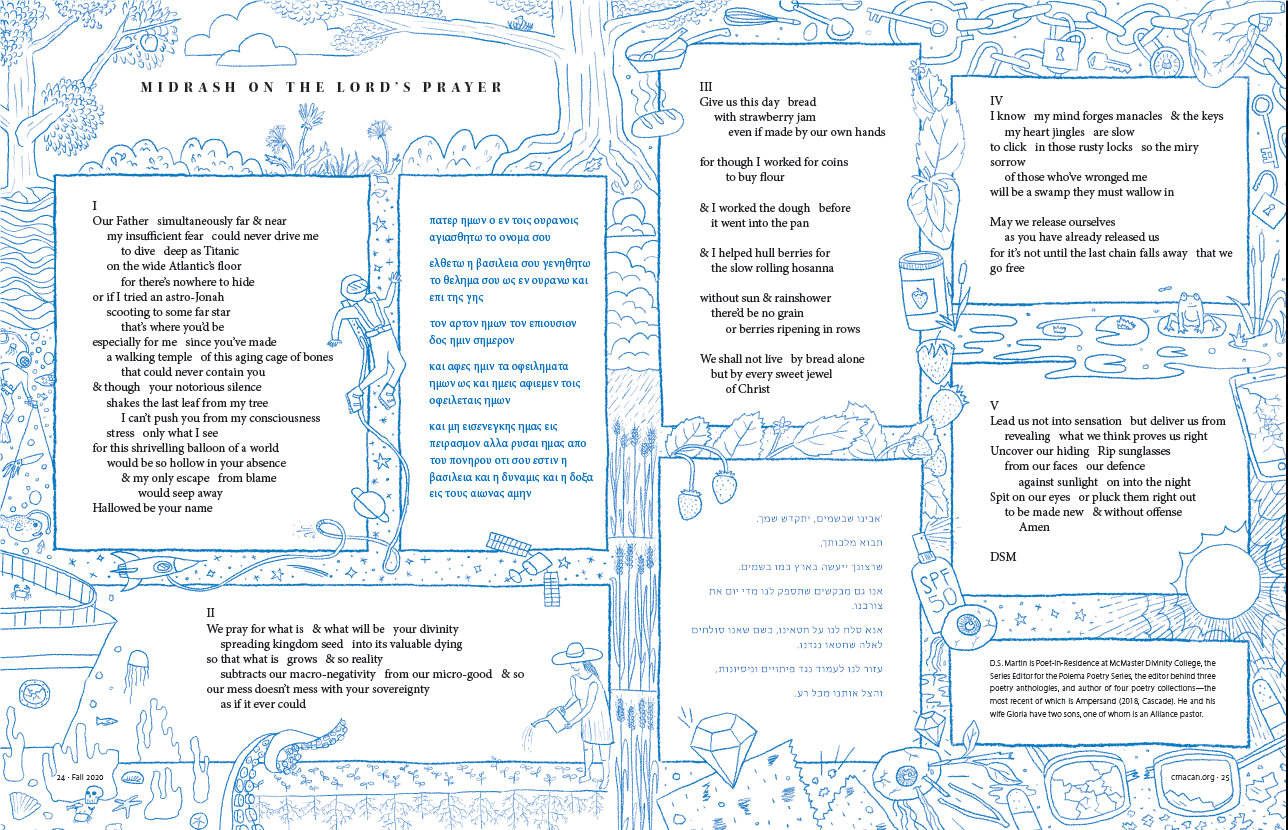Hugo von Hofmannstal (1874—1929) is an Austrian poet, playwright and librettist. When he was just 16, he began publishing remarkably advanced poetry, and became well-connected within Vienna’s literary community.
In 1911 he wrote his adaptation of the 15th century English morality play Everyman, which later became (and still is) a regular feature of the Salzburg Festival. George Sterling says, Hofmannstal “vivified and humanized” the play, adding powerfully to “the dramatic and emotional elements”.
He also worked with Richard Strauss, being the librettist for several of his operas including Elektra (1909) and Arabella (1933). During WWI he held a government post, but the end of the war also marked the end of the monarchy to which he had been dedicated. His latter plays increasingly reflect his Christian faith.
The following are the first lines spoken by God in Everyman, translated by George Sterling and Richard Ordynski.
From Everyman
O men! vile men! how long shall I endure
The hardness of your hearts? Forgetting Me,
Dreading Me not, ye live the lives of beasts.
Basely sin-soaked, blind to My light and law.
And know Me not your God. The world alone
Enthralls you. Heavenly things beget your scorn.
The bond between My majesty and you
Ye have forgotten that I gave My blood.
Dying upon the Tree that men might live,
That I was nailed upon a martyr's cross,
That cruel thorns were woven for my crown,
That I gave all to you. Now all my laws
Ye break. But swiftly shall my judgment come
On sinful man. Unerring messenger!
Stand forth! I have a journey for thee, Death.
This post was suggested by my friend Burl Horniachek.
Entry written by D.S. Martin. His latest poetry collection is Ampersand (2018, Cascade). His books are available through Amazon, and Wipf & Stock, including the anthologies The Turning Aside, and Adam, Eve, & the Riders of the Apocalypse.
Monday, April 29, 2019
Monday, April 22, 2019
Elizabeth Rooney
Elizabeth Rooney (1924—1999) is a poet who grew up on a farm in Blue Mounds, Wisconsin. It is the same farm where the Cave of the Mounds was discovered in 1939 — an attraction well-known throughout Wisconsin. While raising their children she and her husband Mike lived in New York State, where she worked as an employment councillor. Years later, she returned to the Blue Mounds farm to run the Cave of the Mounds National Natural Landmark — a tourist site.
She didn’t begin writing poems until 1978; on a retreat with a group of Episcopal lay women called The Society of the Companions of the Holy Cross, she felt a call from God. Over the next two decades she wrote over 700 poems.
In a letter to Luci Shaw, she once described what inspiration for her poems was like: "Mine seems to come like butterflies, and I try to net them and get them on paper without knocking too many bright bits of color off their wings."
The following poem was written in 1981, and is available in her book Morning Song.
Openings
Now is the shining fabric of our day
Torn open, flung apart,
Rent wide by Love.
Never again
The tight, enclosing sky,
The blue bowl,
Or the star-illumined tent.
We are laid open to infinity,
For Easter Love
Has burst His tomb and ours.
Now nothing shelters us
From God's desire —
Not flesh, not sky,
Not stars, not even sin.
Now Glory waits
So He can enter in.
Now does the dance begin.
Entry written by D.S. Martin. His latest poetry collection is Ampersand (2018, Cascade). His books are available through Amazon, and Wipf & Stock, including the anthologies The Turning Aside, and Adam, Eve, & the Riders of the Apocalypse.
She didn’t begin writing poems until 1978; on a retreat with a group of Episcopal lay women called The Society of the Companions of the Holy Cross, she felt a call from God. Over the next two decades she wrote over 700 poems.
In a letter to Luci Shaw, she once described what inspiration for her poems was like: "Mine seems to come like butterflies, and I try to net them and get them on paper without knocking too many bright bits of color off their wings."
The following poem was written in 1981, and is available in her book Morning Song.
Openings
Now is the shining fabric of our day
Torn open, flung apart,
Rent wide by Love.
Never again
The tight, enclosing sky,
The blue bowl,
Or the star-illumined tent.
We are laid open to infinity,
For Easter Love
Has burst His tomb and ours.
Now nothing shelters us
From God's desire —
Not flesh, not sky,
Not stars, not even sin.
Now Glory waits
So He can enter in.
Now does the dance begin.
Entry written by D.S. Martin. His latest poetry collection is Ampersand (2018, Cascade). His books are available through Amazon, and Wipf & Stock, including the anthologies The Turning Aside, and Adam, Eve, & the Riders of the Apocalypse.
Monday, April 15, 2019
Edwin Arlington Robinson
Edwin Arlington Robinson (1869—1935) is an American poet who began his career publishing with a vanity press and receiving little attention.
In response to a critique of his first book, where he was accused of having the bleak view that our world is a prison, Robinson replied, “The world is not a prison house, but a kind of spiritual kindergarten, where millions of bewildered infants are trying to spell God with the wrong blocks.”
In 1904, Theodore Roosevelt’s son, Kermit, brought Robinson to his father’s attention. President Roosevelt convinced Charles Scribner's Sons to republish Robinson’s second book, The Children of the Night, and reviewed it himself.
In his poem “The Children of the Night” he says:
-----“For those that never know the light,
-----The darkness is a sullen thing…”
After which the poet poses erroneous views — such as that this life is all there is, that God is a lie, or that there is only chaos — which God will respond to in love:
-----“…God counts it for a soul gone mad,
-----And if God be God, He is just…”
The poet concludes the poem:
-----“...Let us, the Children of the Night,
-----Put off the cloak that hides the scar!
-----Let us be Children of the Light,
-----And tell the ages what we are!”
The following poem is from the same book.
Calvary
Friendless and faint, with martyred steps and slow,
Faint for the flesh, but for the spirit free,
Stung by the mob that came to see the show,
The Master toiled along to Calvary;
We gibed him, as he went, with houndish glee,
Till his dimmed eyes for us did overflow;
We cursed his vengeless hands thrice wretchedly, —
And this was nineteen hundred years ago.
But after nineteen hundred years the shame
Still clings, and we have not made good the loss
That outraged faith has entered in his name.
Ah, when shall come love's courage to be strong!
Tell me, O Lord — tell me, O Lord, how long
Are we to keep Christ writhing on the cross!
Entry written by D.S. Martin. His latest poetry collection is Ampersand (2018, Cascade). His books are available through Amazon, and Wipf & Stock, including the anthologies The Turning Aside, and Adam, Eve, & the Riders of the Apocalypse.
In response to a critique of his first book, where he was accused of having the bleak view that our world is a prison, Robinson replied, “The world is not a prison house, but a kind of spiritual kindergarten, where millions of bewildered infants are trying to spell God with the wrong blocks.”
In 1904, Theodore Roosevelt’s son, Kermit, brought Robinson to his father’s attention. President Roosevelt convinced Charles Scribner's Sons to republish Robinson’s second book, The Children of the Night, and reviewed it himself.
In his poem “The Children of the Night” he says:
-----“For those that never know the light,
-----The darkness is a sullen thing…”
After which the poet poses erroneous views — such as that this life is all there is, that God is a lie, or that there is only chaos — which God will respond to in love:
-----“…God counts it for a soul gone mad,
-----And if God be God, He is just…”
The poet concludes the poem:
-----“...Let us, the Children of the Night,
-----Put off the cloak that hides the scar!
-----Let us be Children of the Light,
-----And tell the ages what we are!”
The following poem is from the same book.
Calvary
Friendless and faint, with martyred steps and slow,
Faint for the flesh, but for the spirit free,
Stung by the mob that came to see the show,
The Master toiled along to Calvary;
We gibed him, as he went, with houndish glee,
Till his dimmed eyes for us did overflow;
We cursed his vengeless hands thrice wretchedly, —
And this was nineteen hundred years ago.
But after nineteen hundred years the shame
Still clings, and we have not made good the loss
That outraged faith has entered in his name.
Ah, when shall come love's courage to be strong!
Tell me, O Lord — tell me, O Lord, how long
Are we to keep Christ writhing on the cross!
Entry written by D.S. Martin. His latest poetry collection is Ampersand (2018, Cascade). His books are available through Amazon, and Wipf & Stock, including the anthologies The Turning Aside, and Adam, Eve, & the Riders of the Apocalypse.
Monday, April 8, 2019
Marie J. Post
Marie J. Post (1919—1990) is a Michigan poet, a graduate of Calvin College, and a former teacher of junior high students. Her poems regularly appeared in The Grand Rapids Post, and in The Banner. A number of her own original hymns appear in the Christian Reformed Church’s Psalter Hymnal.
Her collection, I Had Never Visited an Artist Before and Other Poems (Being Press) appeared in 1973, followed by a book of poems focussing on the Apostle Peter — Sandals, Sails & Saints (1993). Some of her poems were also included in Luci Shaw’s anthology of incarnation poems, A Widening Light — which originally appeared in 1984, and has been reissued by Regent College Press.
Palm Sunday
Astride the colt and claimed as King
that Sunday morning in the spring,
he passed a thornbush flowering red
that one would plait to crown his head.
He passed a vineyard where the wine
was grown for men of royal line
and where the dregs were also brewed
into a gall for Calvary’s rood.
A purple robe was cast his way,
then caught and kept until that day
when, with its use, a trial would be
profaned into a mockery.
His entourage was forced to wait
to let a timber through the gate,
a shaft that all there might have known
would be an altar and a throne.
Entry written by D.S. Martin. His latest poetry collection is Ampersand (2018, Cascade). His books are available through Amazon, and Wipf & Stock, including the anthologies The Turning Aside, and Adam, Eve, & the Riders of the Apocalypse.
Her collection, I Had Never Visited an Artist Before and Other Poems (Being Press) appeared in 1973, followed by a book of poems focussing on the Apostle Peter — Sandals, Sails & Saints (1993). Some of her poems were also included in Luci Shaw’s anthology of incarnation poems, A Widening Light — which originally appeared in 1984, and has been reissued by Regent College Press.
Palm Sunday
Astride the colt and claimed as King
that Sunday morning in the spring,
he passed a thornbush flowering red
that one would plait to crown his head.
He passed a vineyard where the wine
was grown for men of royal line
and where the dregs were also brewed
into a gall for Calvary’s rood.
A purple robe was cast his way,
then caught and kept until that day
when, with its use, a trial would be
profaned into a mockery.
His entourage was forced to wait
to let a timber through the gate,
a shaft that all there might have known
would be an altar and a throne.
Entry written by D.S. Martin. His latest poetry collection is Ampersand (2018, Cascade). His books are available through Amazon, and Wipf & Stock, including the anthologies The Turning Aside, and Adam, Eve, & the Riders of the Apocalypse.
Monday, April 1, 2019
Guido Guinizelli
Guido Guinizelli (c. 1230—1276) is an Italian poet; he became a judge in his native city of Bologna, but in 1274 was exiled. Guinizelli transformed what he had learned from the Provençal poets, and became a significant influence on such Italian poets of the following generation, as Guido Cavalcanti and Dante Alighieri.
His poetic theme is romantic love — particularly from the perspective of an unsuccessful suitor — with the acknowledgement that love is of God. “Guinizelli's poetry can be briefly described as a conciliation between divine and earthly love with deep psychological introspection.”
In the following selection — translated by Robert Edwards — he expresses the sadness of his unrequited love to his Lord. Later in the poem, he imagines himself before the judgement of God, who reproaches the poet’s preoccupation with the lady: “All praises are due to me alone”. The poet lamely replies, “She had the likeness / Of an angel from your kingdom. / It’s not my fault I fell in love with her.” His lines are likely to flatter the woman, but his excuse doesn’t even seem to convince himself. I suspect he wants us to see through his defence, so we will be cautious of how much devotion we give to anything besides God.
from Lady, love compels me
I’m driven to paint the air
Since I’ve been led to this end:
I toil and I gain nothing.
Alas, that I was given to this!
Love has led me to this end:
I am the saddest of all men.
Oh, Lord Jesus Christ,
Was I the only person born
To be in love forever?
Since my lady has seen it,
It’s better that I should die at once:
Perhaps she will feel compassion.
This post was suggested by my friend Burl Horniachek.
Entry written by D.S. Martin. His latest poetry collection is Ampersand (2018, Cascade). His books are available through Amazon, and Wipf & Stock, including the anthologies The Turning Aside, and Adam, Eve, & the Riders of the Apocalypse.
His poetic theme is romantic love — particularly from the perspective of an unsuccessful suitor — with the acknowledgement that love is of God. “Guinizelli's poetry can be briefly described as a conciliation between divine and earthly love with deep psychological introspection.”
In the following selection — translated by Robert Edwards — he expresses the sadness of his unrequited love to his Lord. Later in the poem, he imagines himself before the judgement of God, who reproaches the poet’s preoccupation with the lady: “All praises are due to me alone”. The poet lamely replies, “She had the likeness / Of an angel from your kingdom. / It’s not my fault I fell in love with her.” His lines are likely to flatter the woman, but his excuse doesn’t even seem to convince himself. I suspect he wants us to see through his defence, so we will be cautious of how much devotion we give to anything besides God.
from Lady, love compels me
I’m driven to paint the air
Since I’ve been led to this end:
I toil and I gain nothing.
Alas, that I was given to this!
Love has led me to this end:
I am the saddest of all men.
Oh, Lord Jesus Christ,
Was I the only person born
To be in love forever?
Since my lady has seen it,
It’s better that I should die at once:
Perhaps she will feel compassion.
This post was suggested by my friend Burl Horniachek.
Entry written by D.S. Martin. His latest poetry collection is Ampersand (2018, Cascade). His books are available through Amazon, and Wipf & Stock, including the anthologies The Turning Aside, and Adam, Eve, & the Riders of the Apocalypse.
Subscribe to:
Posts (Atom)























